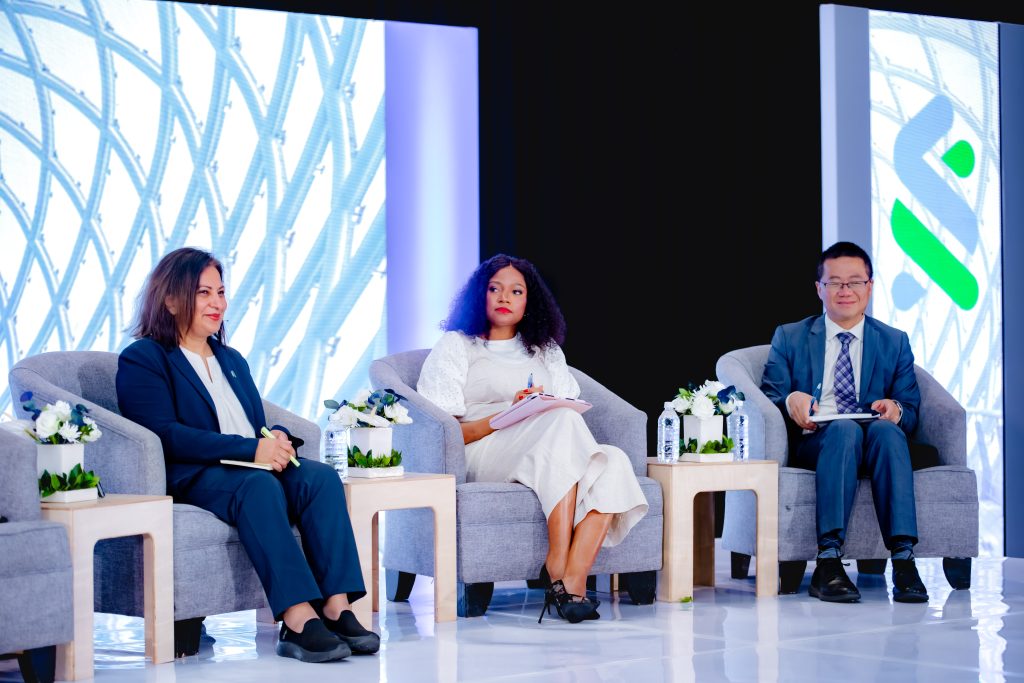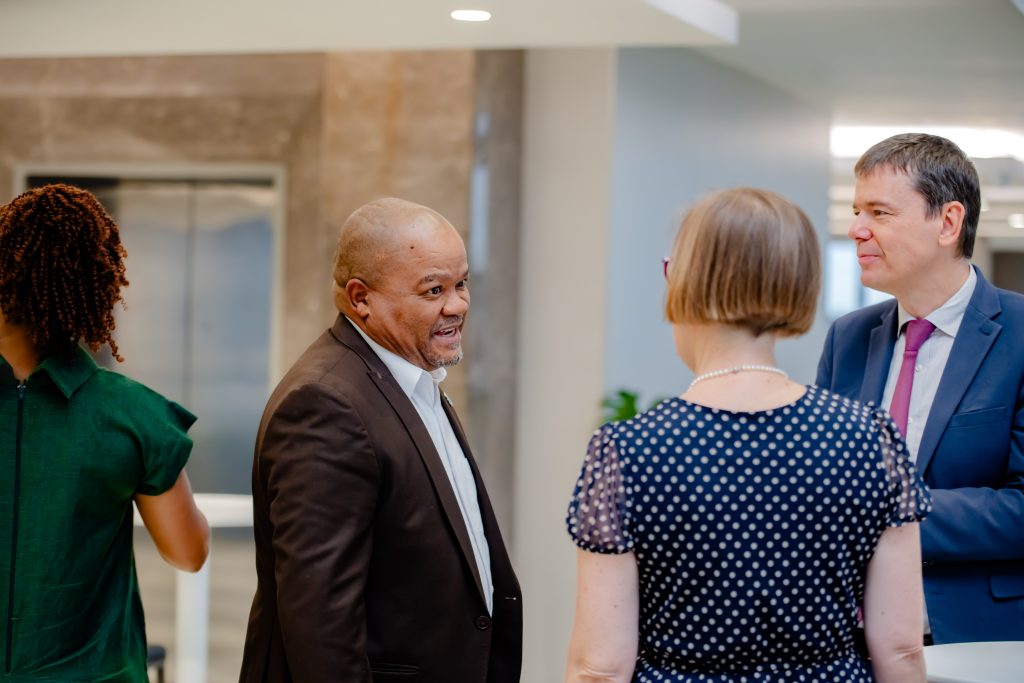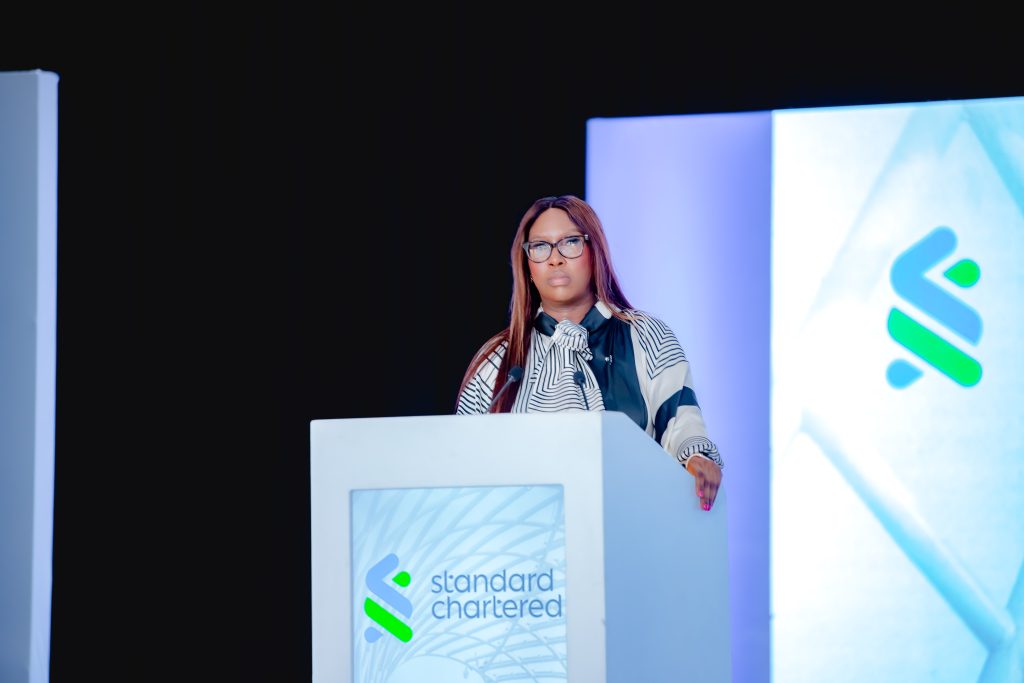Standard Chartered Bank Botswana held a Research Briefing and Investment dialogue with key stakeholders that included corporate and business clients, government officials, and partners in the financial and capital markets sector. The discussion was led by Naledi Madala, Senior Policy Advisor at the Ministry of Finance, Liang Wang, World Bank Resident Representative for Botswana and Razia Khan, Head of Research and Chief Economist at Standard Chartered for Africa and Middle East and they unpacked opportunities that Botswana and Africa can tap into, to turbo charge economic and sustainable development. The discussion was underpinned by recent geopolitical challenges such as increased US tariffs on US imports and retaliatory economic measures taken on by other countries; measures that are likely to have immediate negative reverberations particularly across developing nations in Africa.
All the speakers in the room were in one accord with the sentiments that, despite the challenges and the uncertainty, there is opportunity for countries such as Botswana to adapt and re-invest locally to revive muted industries, sectors that were previously offshore and increase local manufacturing capacity.

“In the near term, Botswana will experience challenges with the current geopolitical dynamic. Many African countries will experience these challenges, but this is an opportunity for the country to be creative and drive diversification efforts by boosting the country’s industrial and manufacturing capacity.” Stated Razia Khan.
Mr Wang highlighted the need for Botswana to think productivity and think long-term in planning and in response to the current macro-economic dynamics. Ms Madala, offered insights into the Government’s response to the volatility in the economy, citing the need for transformative reforms in an effort to build a new Botswana. Ideas around reform included those that are centered around transforming key areas such as education, in particular vocational training, immigration, introducing precision medicine to reduce the cost of medical supplies and reinvigorating the country’s financial structure through the development of a Botswana sovereign wealth fund.

Discussions at the event spoke about learning from countries that have enacted successful reforms such as United Arab Emirates that introduced immigration policies that attracted not only Foreign Direct Investment but large volumes of immigrants that helped build the human capital in the UAE. Also referenced was Norway that had successfully established a sovereign fund through implementing frugal fiscal policies.
“The key message from these discussions is to not think of this as a crisis, but rather as an opportunity for Botswana to turbo-charge our economy, think beyond our reliance on the mining sector, especially diamonds and to re-invest on building capacity onshore for a more sustainable future.’ Stated Razia Khan.

